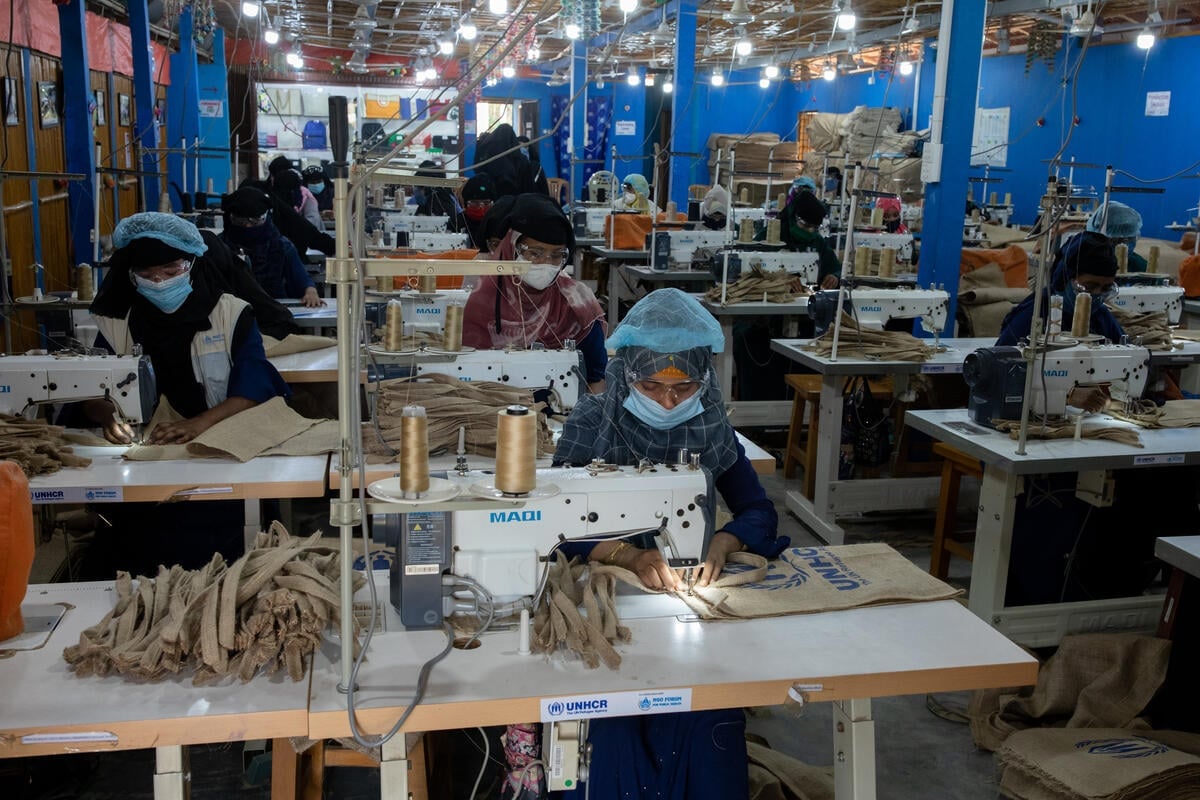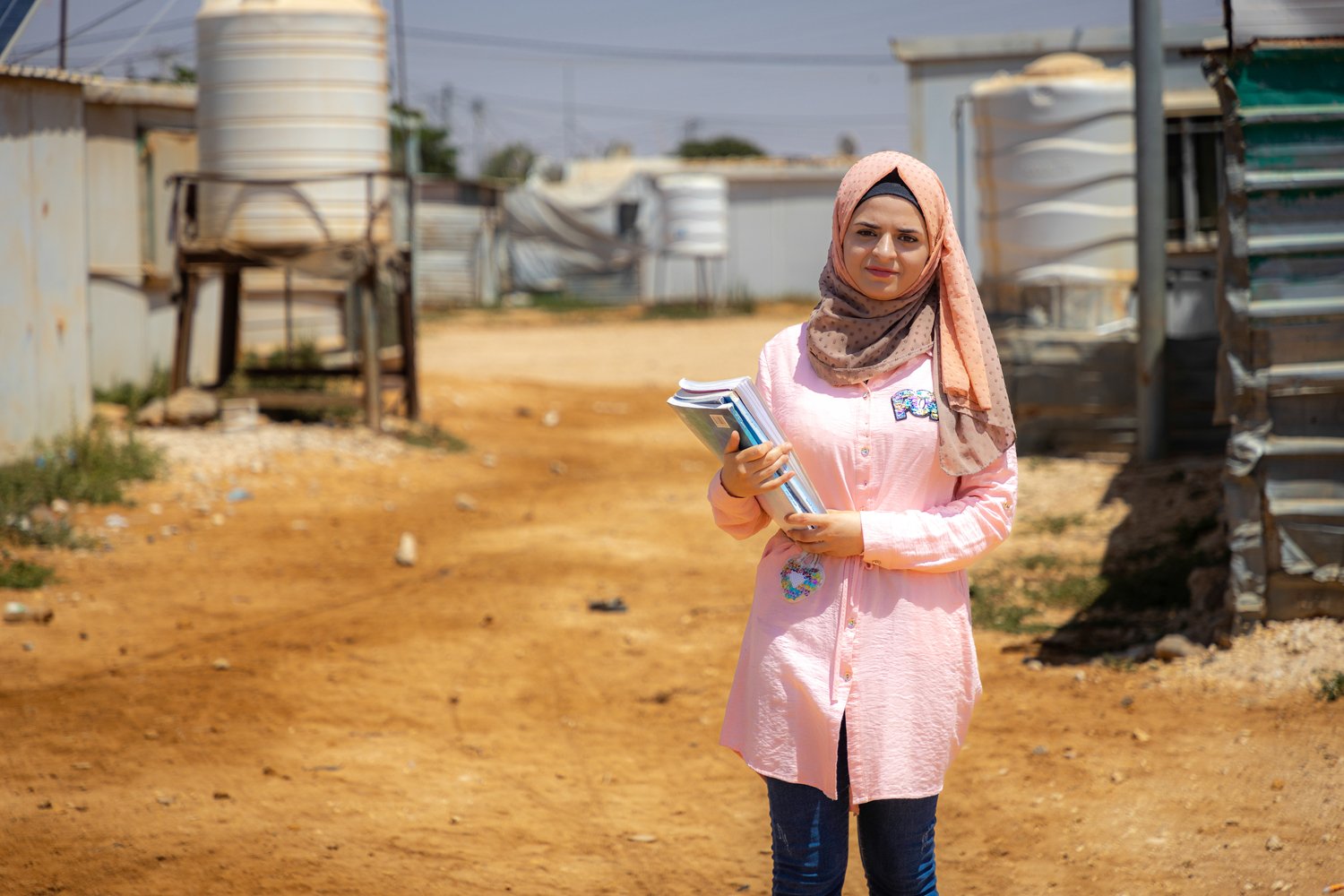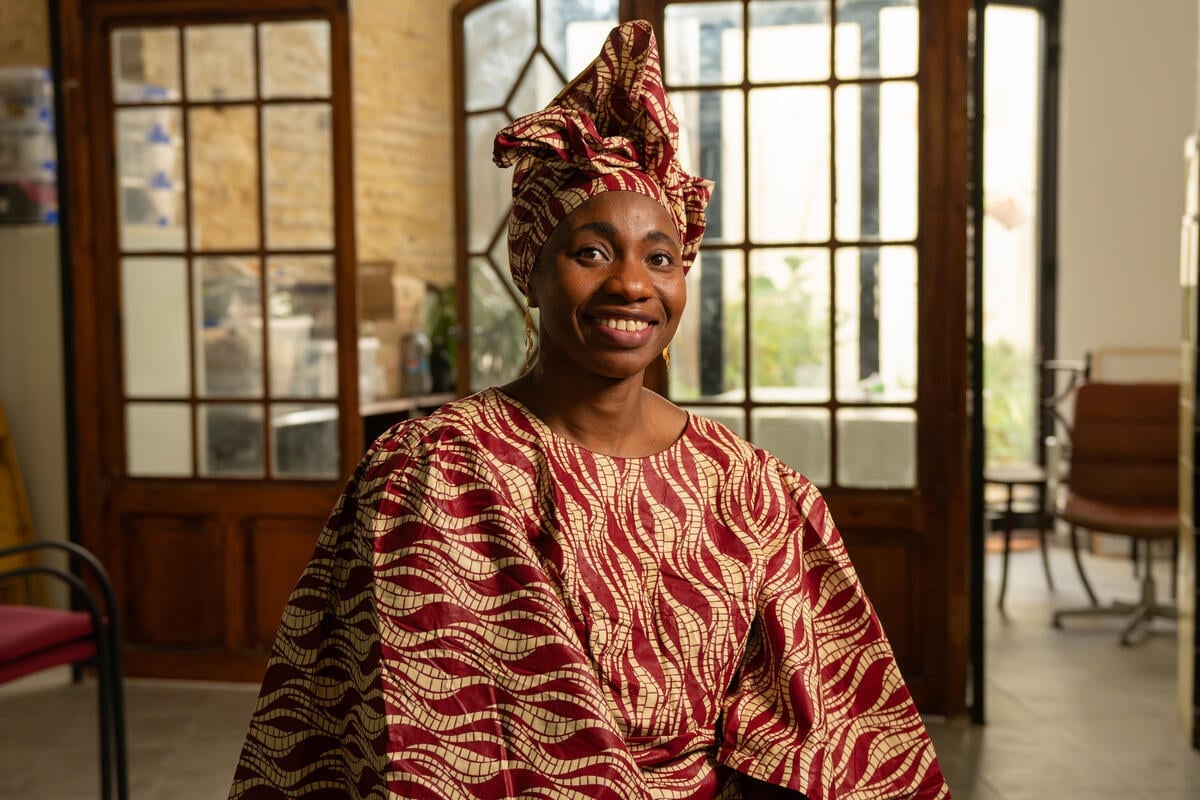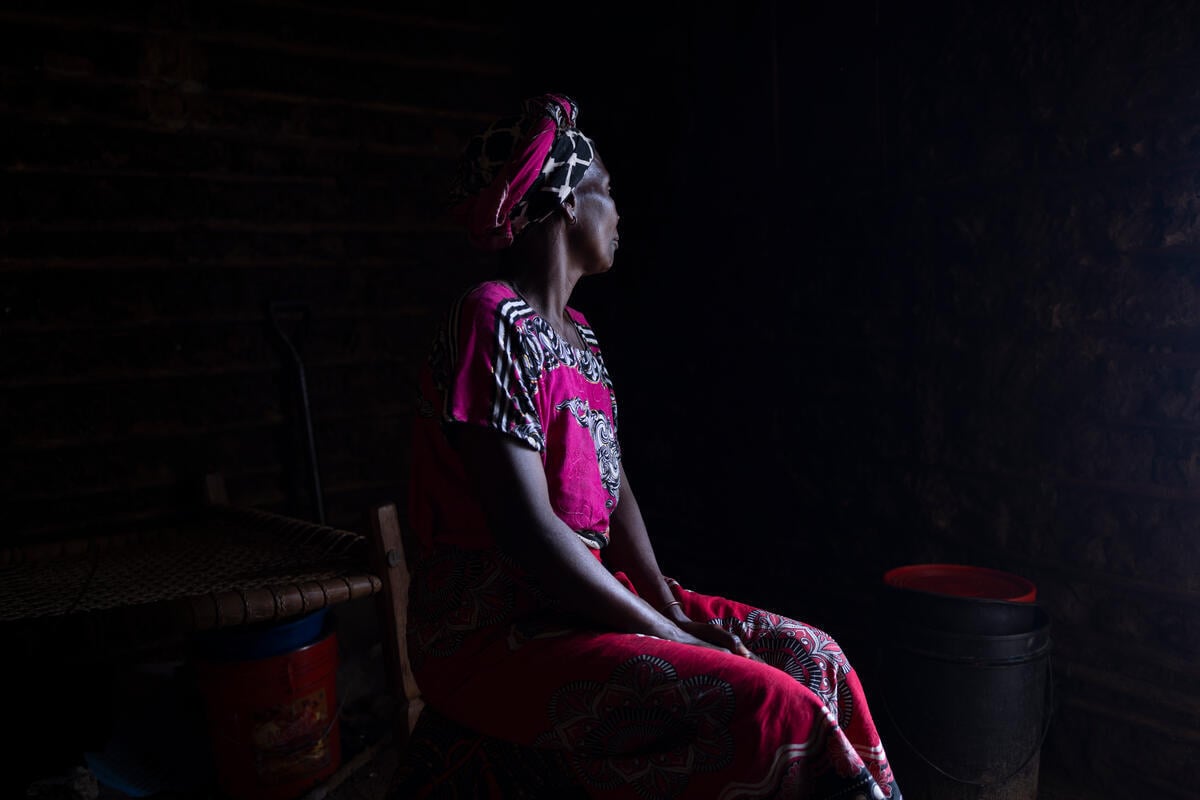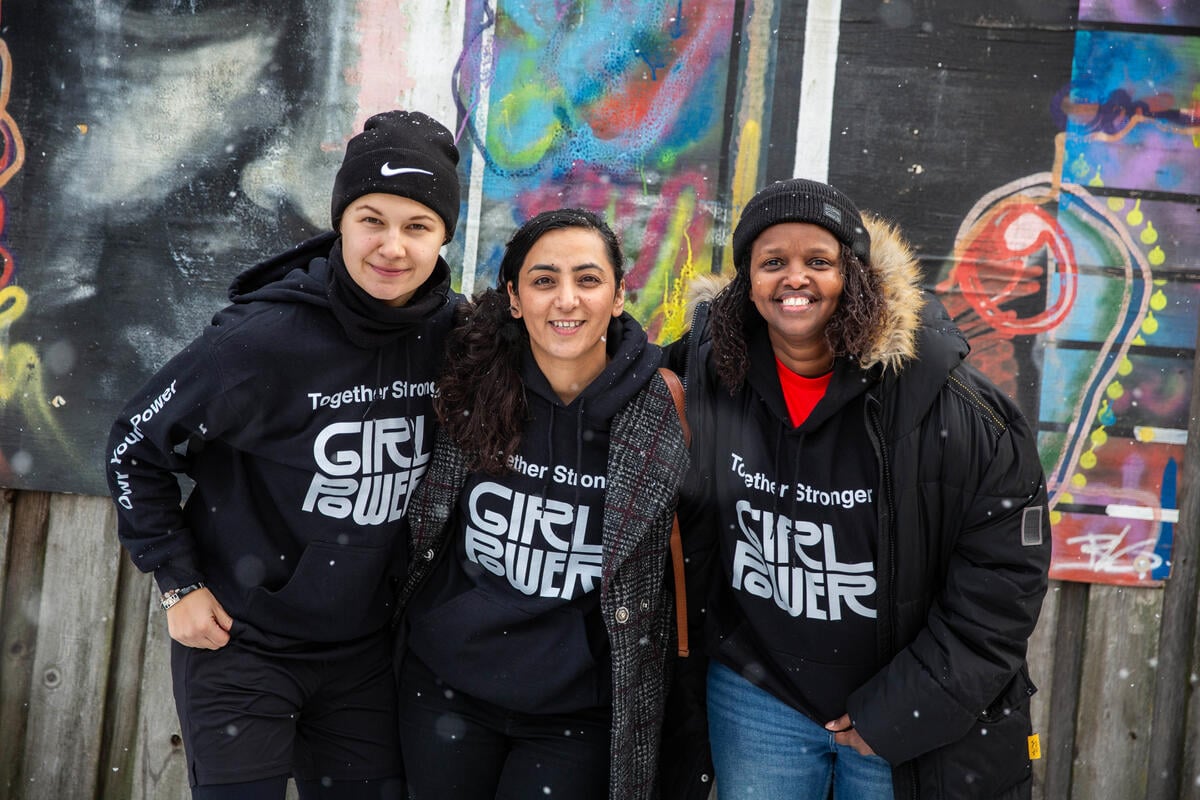"My physical security is my own responsibility” - refugee women take charge of their security

"My physical security is my own responsibility” - refugee women take charge of their security
Deepanjali Bakshi, National Security Officer with the United Nations Department of Safety and Security (UNDSS), facilitating the training on safety and self-defence.
“It’s not necessary that the attacker is from outside; he can be inside our homes as well. Nobody will come to save me—I have to save myself,”
Ruqiya has faced and overcome several situations where she felt unsafe physically.
Ruqiya Begum’s words resonate with a truth that many women, especially those displaced from their homes or countries, grapple with everyday. Across the world, more than 60 million women and girls like herself, who are forcibly displaced or stateless, face high risks of gender-based violence.
But Ruqiya trusts that her physical safety is her own responsibility. And while concerns relating to Gender-Based Violence (GBV) remains prevalent among women from refugee communities, she believes that basic security awareness and training can help her navigate through these challenges. She, along with 46 other refugee women from various communities, made a vow to turn that vulnerability into strength.
Gathered at UNHCR partner, BOSCO-run centre, women from Afghan, Myanmar, Somali, Congolese, and Ugandan communities came together to learn, share experiences, and empower one another. This wasn’t just another workshop; it was a transformative moment where women took control of their security and learned how to protect themselves against violence in an uncertain world.
While gender-based violence remains one of the most pervasive human rights violations worldwide, UNHCR, the UN Refugee Agency, warns that the risks are heightened for women and girls in situations of conflict, or who have been forced to flee their homes or countries in search of safety.
Staying aware
The session began with a simple yet profound lesson: awareness is power. Refugee women, many of whom hold leadership roles in their communities, watched an engaging video designed to test their observation skills.

Discussion with a refugee woman during a safety and self-defence training
“It’s remarkable how much we miss when we don’t pay attention,”
Participants learned the importance of sharpening their six senses—listening to their instincts, observing their surroundings, and identifying potential risks. Through activities like spotting differences in pictures or navigating their surroundings blindfolded, the women realised how a few moments of attentiveness could mean the difference between safety and harm.
Strength in stories
"It is empowering for women to learn from each other's experience," shared Selin Mathews, Associate Protection Officer (community-based), UNHCR India. "It was inspiring to see active participation of women and hear their stories of resilience on their daily challenges in life."
These stories were shared with purpose. They became the foundation for practical learning, as the group discussed strategies for avoiding danger, defusing confrontations, and responding to threats.

Women practicing self-defence training during the safety training session
“Her courage reminded us that fear can be overcome, and we are stronger than we think,”
The laughter filled the room during lighter moments—like when a participant joked about pretending not to understand a language to escape an uncomfortable situation.
Practical tools for safety
The training moved beyond discussion and experience sharing to more practical tools and techniques. It moved to action, teaching self-defense techniques with everyday items like keys or pens. “Avoiding a fight is the best line of defense,” Deepanjali reminded the participants.

Women from Myanmar engaging in safety and self-defence training
But when avoidance isn’t an option, these women were shown how to target vulnerable points on an attacker’s body. With mock practice sessions, they learned that even in moments of fear, they could act decisively.
The session also addressed modern threats like cybercrime, which disproportionately affect women and girls. The participants gained insights into how to protect their digital lives and shared tips with one another about staying safe online.
According to UN Data, reports of conflict-related sexual violence increased shockingly by 50 per cent last year compared to the previous yearLink is external. Women and girls accounted for 95 per cent of verified cases.
Building a community of courage
The training was not just about individual safety—it was about creating a ripple effect of empowerment. Each woman left with new skills and renewed confidence, ready to share what she had learned with her family and community. The event also provided a platform for discussing deeper issues like consent and compliance under duress. “Saying yes to survive is not consent,” Deepanjali emphasized, a point that many participants found liberating.
Ruqiya’s words echoed through the session, but another participant, Amy, added a hopeful perspective: “Any bad experience shouldn’t force us to stay inside and depend on the male members of our families. We should always be independent.”

Women attending the safety training organised by UNHCR's partner BOSCO
Early and effective GBV prevention and response measures are life-saving and life-changing. Across the world, these programmes are having a measurable impact on the lives of displaced and stateless women and girls, as well as their host communities.
During this year's 16 Days of ActivismLink is external, we urge more support to address GBV.


